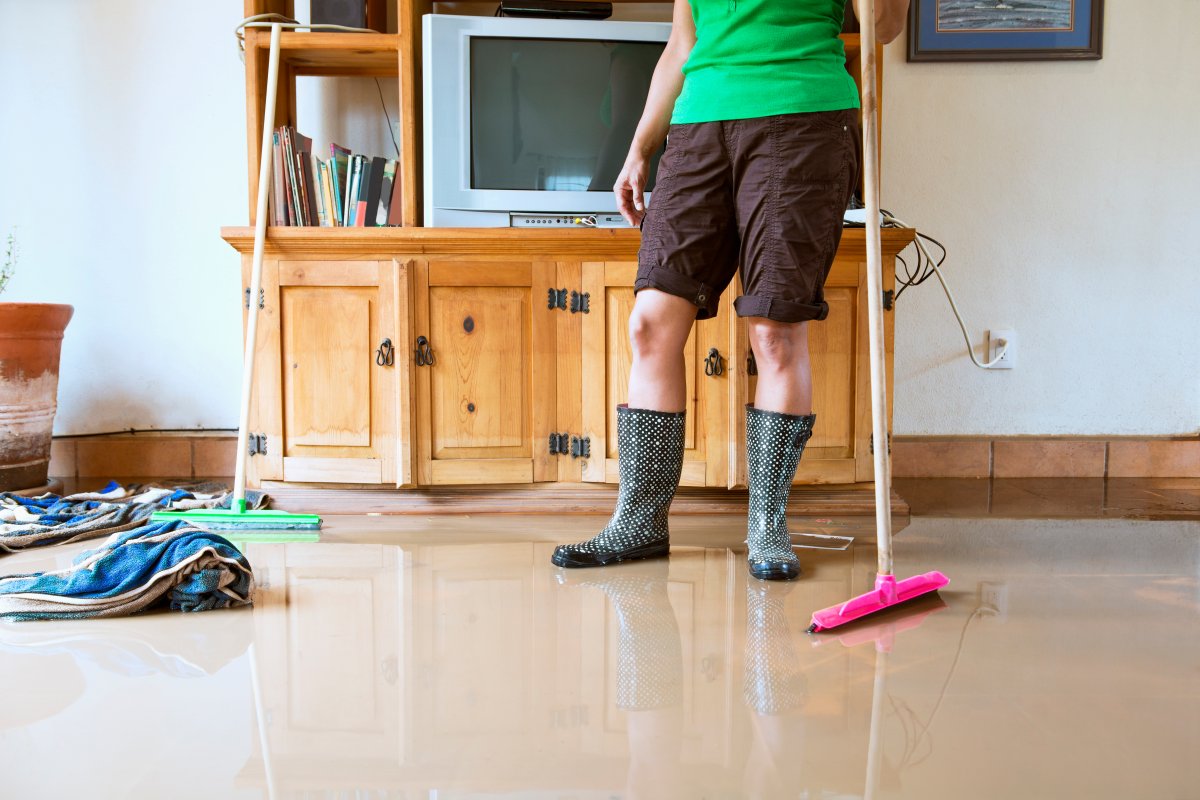The home-buying season is in full swing in North America — and flood season is still on.

After overflowing rivers ravaged communities in Newfoundland and British Columbia, the Town of Banff, Alta., received its own flood alert on Tuesday. And flash flooding turned the streets of Maryland’s historic Ellicott City into rapids on Sunday.
READ MORE: Maryland flash flooding – Incredible images show historic Ellicott City ravaged by floodwaters
So how can homebuyers reduce the risk that the biggest investment of their lives will at some point end up under water?
You wouldn’t necessarily know it from the headlines. With extreme weather events now happening with alarming frequency, flooding is becoming increasingly common, even for homes that are nowhere close to waterways. And a basement flooded by sewer backup after a torrential downpour wouldn’t make the news.
READ MORE: Flooding, flooding everywhere – do Canadians have insurance for it?
Flooding has overtaken fire as the No. 1 cause of home insurance payouts, with claims for flooded basements averaging $43,000 in major cities. And yet, there isn’t much in Canada that would help homebuyers assess that risk, says Blair Feltmate, head of the Intact Centre on Climate Adaptation at the University of Waterloo.
SIGN UP: Global News has a new Money newsletter
Home inspectors aren’t trained to spot flood risks
A home inspection, for example, will likely tell you little about whether you should waterproof the basement or regrade the perimeter of your future home so that the water flows away from the foundations.

Get weekly money news
“Home inspectors receive virtually zero training on flood risk assessment,” Feltmate told Global News.
And the process of changing that is just getting underway. Feltmate’s own Intact Centre is developing a flood-risk crash course for home inspectors that will be rolled out in Ontario this September and throughout Canada at the beginning of next year.
READ MORE: ‘This is a huge shock to us’ — What climate change means for home insurance
Municipal flood plain maps are usually outdated
Large municipalities and conservation authorities across Canada generally have maps that prospective homebuyers can ask to see to check whether a property lies in a known floodplain.
But those drawings are often 25 to 30 years old and woefully out of date, Feltmate said.
The Trudeau government just released guidelines to harmonize flood maps across Canada last year.
WATCH: Here’s why cities flood more easily than rural areas

Homesellers don’t necessarily have to tell you about past flooding
Don’t think your homeseller will let you know about past floods. Often, the onus of finding that out lies squarely with the homebuyer.
Editor’s note: The following sentence has been modified to reflect the fact that homesellers have an obligation to disclose latent defects.
In general, homesellers have an obligation to disclose so-called latent defects, including those that “wouldn’t be readily identifiable by a reasonable person doing an inspection of the property,” said Michael Abrams, an Ottawa-based lawyer at Kelly Santini.
And homesellers can’t lie if you ask them direct questions, he added.
“There’s a duty of good faith that exists that you have to provide complete and truthful answers to those questions.”
READ MORE: Here’s how much climate change can cost homeowners in damages
But homeowners don’t have to volunteer information about properties that are located in a known floodplain or an instance of flooding, whether it was from overland water seeping in through doors and windows or old city regurgitating sewage into the basement.
Those, at least, are the common-law principles that apply throughout Canada, Abrams said. Each province has its own regulations on the matter, and private law in Quebec is governed by French-inspired civil law.
What homebuyers can do
Canada is catching up when it comes to flood insurance, with a growing number of insurers now providing both sewer-backup and overland insurance, which are generally treated as additional coverage.
But buying flood insurance is no substitute for doing your due diligence before signing on the dotted line. A growing number of homes throughout Canada are becoming uninsurable due to repeated instances of flooding, Feltmate said. And even a single instance of water seeping through your basement drains could lead to drastically higher insurance premiums or denial of further coverage, as Global News has previously reported.
Your best bet? Asking pointed questions of homesellers and their neighbours.
“Spend time in the community,” Feltmate said. The extra legwork could really pay off in the long term.









Comments